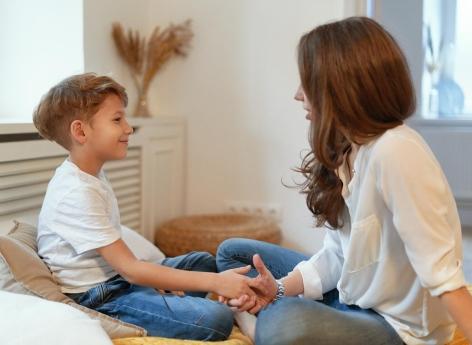A survey by the Ronald McDonald Foundation and Opinion Way shows that parents feel very alone when their child is hospitalized.

- 88% of parents felt a lot of emotional pressure on their shoulders when their child was hospitalized.
- 51% of parents report having encountered sleep difficulties.
- 23% say they have encountered psychological difficulties.
Pain, injuries, fever… Having a child hospitalized is not easy. In fact, nearly 7 out of 10 parents admit to feeling isolated and alone when faced with this ordeal. The Ronald McDonald Foundation conducted a survey with Opinion Way on the psychological and physical impact of a child’s hospitalization on parents.
Children in hospital: great pressure for parents
The hospitalization of a child is a real upheaval, very often difficult for parents to live with. This is confirmed by the study conducted among 1,000 people interviewed who had gone through this type of ordeal: they admitted to having felt a great deal of emotional pressure on their shoulders. 7 out of 10 parents explained that they had felt discouraged, “not up to it” or overwhelmed by the situation. Controlling this flood of feelings is not easy. 75% of parents admit to having had difficulty managing their emotions in the presence of their children.
Another finding of the survey: Moms and dads who lived more than 20 km away were more worried and stressed during their child’s hospitalization than all parents surveyed. Those who were able to benefit from accommodation close to their child’s hospital – such as a Ronald McDonald House – felt less of these negative emotions.
51% of parents have experienced sleep difficulties.
Having a child in hospital impacts both the mental and physical health of parents. 53% of respondents reported having suffered from sleep disorders. 23% reported having encountered psychological difficulties. One of the biggest problems is the feeling of isolation. One in two parents felt misunderstood by their loved ones. 59% also admitted having needed to cut off all social life to devote themselves to their hospitalized child.
Faced with their difficulties, 35% of parents thought about consulting a mental health professional (psychologist, psychiatrist, etc.) to support them, but only 18% actually did so. Four out of 10 parents would have liked to have been offered psychological help and 5 out of 10 would not have said no to relaxation and recreational activities with their child. 52% of the fathers and mothers surveyed admitted to having thought about asking for a work stoppage to be available for their hospitalized child. However, only 34% actually did so.
Furthermore, while 48% of them say they would have liked more support from the medical team, 64% believe that it is easier to get it today.















